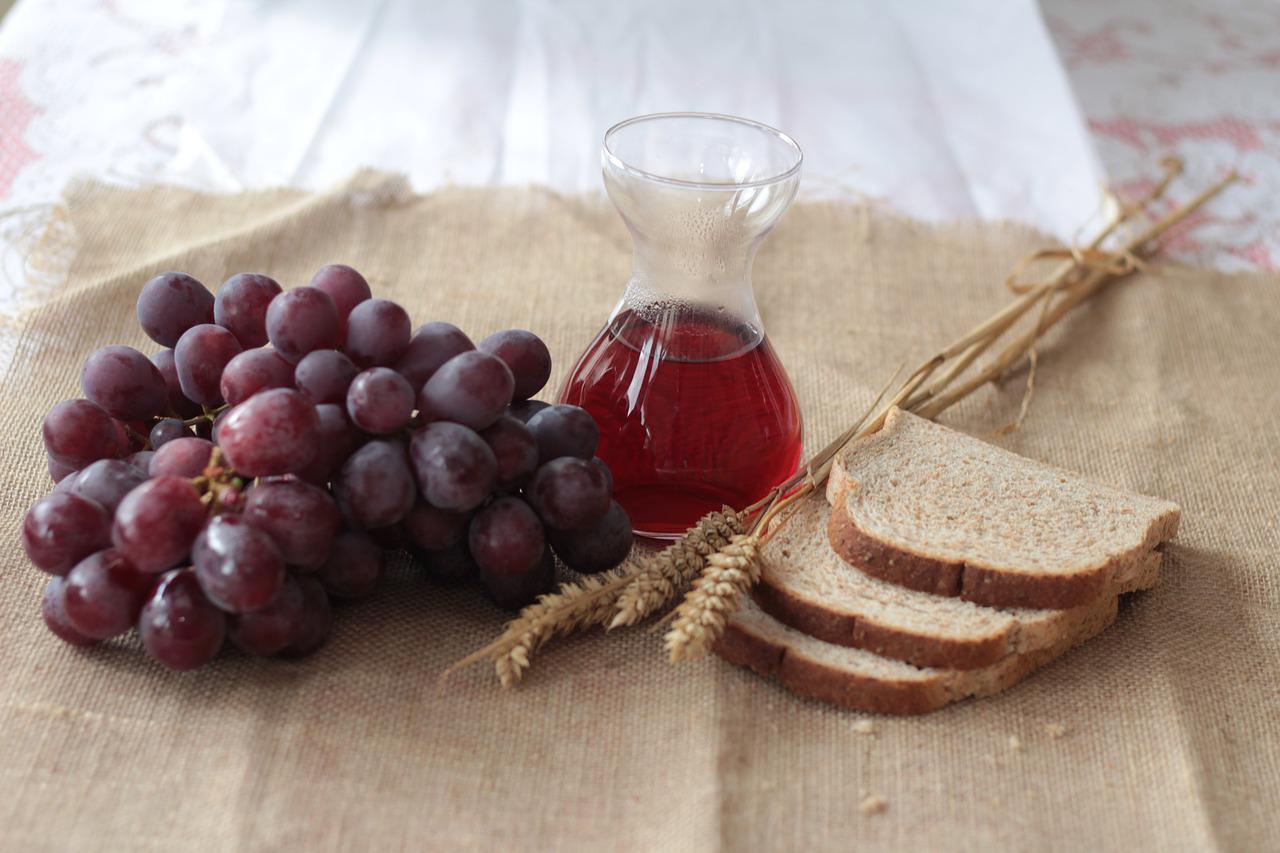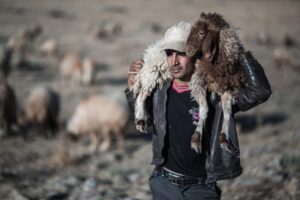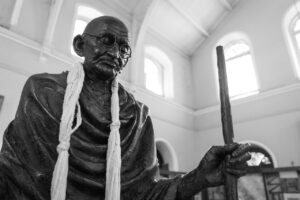Roman Missal: Genesis 14: 18-20 (RM ) or Isaiah 65: 1-9 (RCL); Psalm 110 (RM) or Psalm 22 (RCL); I Corinthians 11: 23-26 (RM) or Galatians 3: 23-29 (RCL); Luke 9: 11b-17 (RM) or Luke 8: 26-39 (RCL).
When you’re an invited dinner guest, or ordering from the menu at a restaurant, probably the last thing on your mind is whether the food is safe to eat. We tend to assume the food is fine, unless something else triggers your suspicions – perhaps the environment looks unclean, or the food doesn’t smell or taste quite right.
Or maybe the circumstances are just questionable enough to suggest caution is in order. I remember traveling on a train in Italy by myself, and striking up a conversation with a fellow passenger in the carriage. He got up and a few minutes later came back with two cups of coffee from the bistro car. I didn’t drink it. The coffee was probably OK, but he was a man traveling alone, I was a young woman alone in a foreign country. A quick check of my instincts told me, better not.
In our brief but somewhat obscure first reading from Genesis (for those who celebrate this Sunday as the Feast of the Body and Blood of Christ), a foreign king comes out to Abram and offers bread and wine. An apparent gesture of hospitality. But there are layers and layers to this story, more than you would suspect by its placement, along with Psalm 110, as a precursor reading to today’s two New Testament accounts used to anchor in ancient tradition the Christian practice of gathering to break bread in memory of Jesus. Those readings are Paul’s narrative account in I Corinthians, and a multiplication-of-the-bread miracle story in Luke.
Melchizedek, whose name meant “righteous king,” governed the Jebusite city of Salem, on the site of the later Hebrew city of Jerusalem. King Melchizedek was a priest of a different god – not the saviour God of Israel, but a God identified as the creator of heaven and earth. This God, seemingly, did not demand sacrifice to placate wrath and effect forgiveness, nor was this a mere tribal God, but instead a cosmic God. Melchizedek’s bread and wine was a sort of thanksgiving offering, possibly to thank his people’s God for Abram’s victory over their common foes.
Notice that Melchizedek does not bless the bread and wine. He blesses Abram. And Abram presents him with a thank offering in return, a tenth of what was probably booty obtained in the conflict. Shared food bonded the giver and the receiver.
Here’s another food story – and another train story. It did not happen in reality. This was a dream. Dreams have their own, often bizarre ways of expressing literally a metaphor that reflects some event, or some fear, in one’s waking life. Several nights ago, in a dream, I was on a moving train. I was on the floor of an empty carriage by the door. It was a prison train. I was a prisoner. There were guards. I was sitting with two take-out packages of food I had been given for the journey. But the food had been poisoned. I knew that from reading the ingredient labels. The guards were out of sight for a moment. So I was able to pry open the train doors and throw the poisoned food out.
Let’s build on this, from two approaches:
- Is there anything in our own lives, or in the lives of our friends or family, or in the life of our society or our country, that represents poisoned food? Are there delicious, tempting delicacies at hand that we dare not even taste? Are there forms of “food” in our lives, or in our world, that must be thrown out the door and never touched?
- Is there food that we share with another as a thanksgiving offering? Is there food of joy, food that marks a celebration, delightful rare food that nourishes us? And who else needs this nourishing food? Do we have enough to share? There’s practically always enough to share in some way – that’s one takeaway we can glean from the Gospel, whether you prefer the multiplication-miracle interpretation or the idea that maybe everyone just pulled out the food they’d brought along for themselves, and shared it all. Whatever happened, there was plenty left over.
Twelve wicker baskets left over. Of really, really good food.
© Susan K. Roll
Susan Roll retired from the Faculty of Theology at Saint Paul University, Ottawa, in 2018, where she served as Director of the Sophia Research Centre. Her research and publications are centred in the fields of liturgy, sacraments, and feminist theology. She holds a Ph.D. from the Catholic University of Leuven (Louvain), Belgium, and has been involved with international academic societies in liturgy and theology, as well as university chaplaincy, Indigenous ministry and church reform projects.





What a beautiful weaving of experience, insight and scholarship, around food and trains, revealing “a cosmic God”, and a world where, if we share, there is always enough.